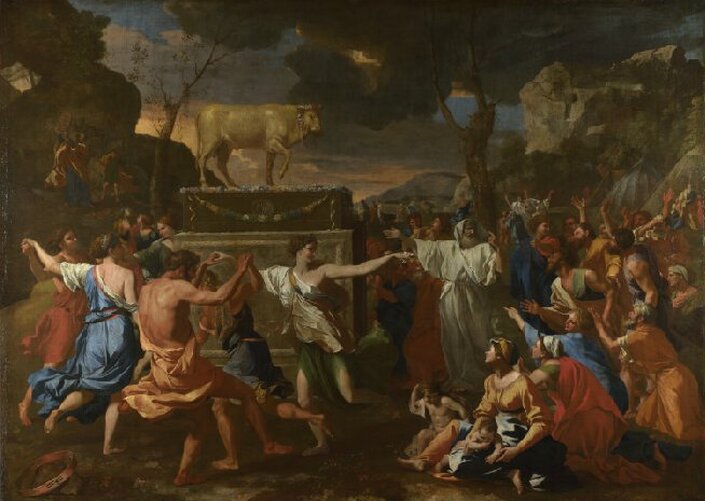|
Exodus 32:7-14 (NRSVCE)
There are a few passages in Scripture which seem to present us with a bit of a problem. This one, for example, portrays God in a way that makes it seem like He changed His mind because of what Moses said. There’s also the binding of Isaac, when God seemed to change His mind right before Abraham sacrificed Isaac, and instead provided a ram. The trouble is that God does not change—He is the same eternally. Numbers 23:19 says this explicitly: “God is not a human being, that he should lie, or a mortal, that he should change his mind. Has he promised, and will he not do it? Has he spoken, and will he not fulfill it?” So we seem to be left with a bit of a pickle. Either God can change His mind as these verses seem to say, and then Numbers 23 is false, or God never actually changed His mind, in which case what do we make of these passages where it seems that He does?
Well, one thing we do know about God is that He is far beyond our comprehension. We cannot even begin to truly understand His ways or His nature. But the thing is, God still interacts with man, and man with God. God still chooses to reveal things to man, and bless man, and guide man. And in order to do that, God needs to interact with us in a way that we can understand. John Calvin describes it as thus, using the term “repentance” to refer to God “changing his mind”: “Because our weakness cannot reach his height, any description which we receive of him must be lowered to our capacity in order to be intelligible. And the mode of lowering is to represent him not as he really is, but as we conceive of him. Hence, because every change whatever among men is intended as a correction of what displeases, and the correction proceeds form repentance, the same term applied to God simply means that his procedure has changed. In the meantime, there is no inversion of his counsel or will, no change of his affection. What from eternity he had foreseen, approved, decreed, he prosecutes with unvarying uniformity, how sudden soever to the eye of man the variation may seem to be.” -John Calvin (Institutes 1.17.13) What Calvin is pointing out here is that these instances where it appears that God is changing His mind are actually just our limited perception of His actions. It seemed that God wanted to kill all the people of Israel, and it seemed that this desire changed suddenly after Moses made petition. But God never intended to kill all the people (we know this because He did not do it). What we don’t want to say here, in an attempt to make sense of this, is that God deceived Moses by feigning that He would kill the people. God does not deceive. But what we can say, and what Calvin explains above, is that this appearance is us ascribing human qualities and traits to God, in an attempt to understand Him (we would call it “anthropomorphism”). In reality, God knew always that He would show mercy toward the people. It seemed He had a change of heart only because that is how a human would respond. God revealed to Moses that Israel deserved to die for its transgressions, and Moses began pleading for mercy on their behalf. And then God revealed His mercy. There is no change in God, there is only man trying to understand how God makes Himself known to us. But now we come up against the question in this story of why God told Moses that Israel deserved death, if He always intended mercy? If He did not intend to smite them, why bring it up? Because like Abraham and Jacob before him, this is a test for Moses. He is to wrestle, like Jacob did. He is to demonstrate his resolve to lead God’s people, for they have a long way to go to the Promised Land. Notice how God refers to them not as “my people”, but as “your people.” “Go down, because your people, whom you brought up out of Egypt, have become corrupt.” Moses says the same in return. “Why should your anger burn against your people, whom you brought out of Egypt with great power and a mighty hand?” Moses demonstrates that he understands his role as mediator. He is to stand and lead the people, according to God’s direction. God had no intention of killing the Israelites. But God had every intention of preparing Moses for what was to come. |
ArchivesCategories
All
|

 RSS Feed
RSS Feed